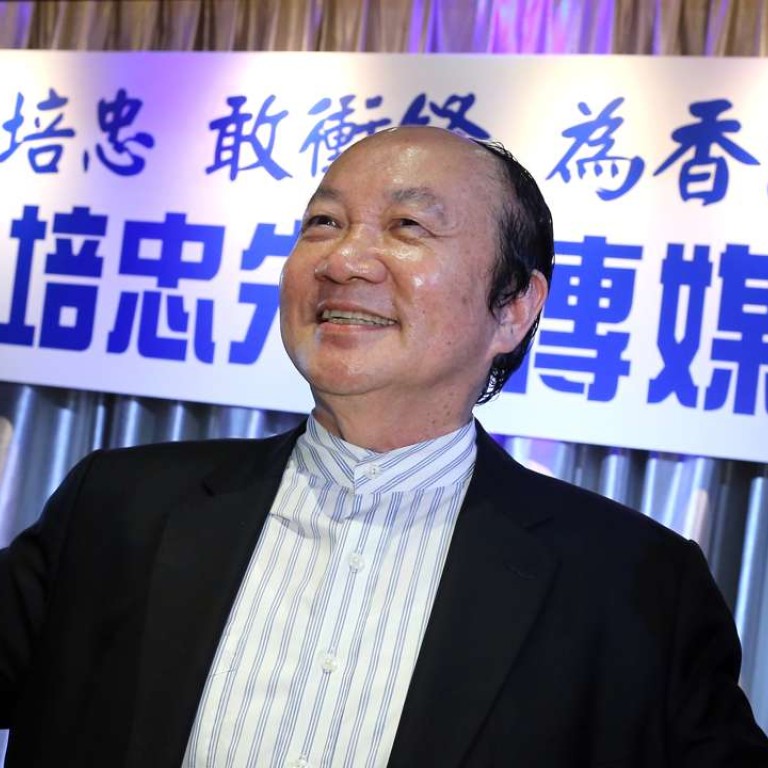
A case study in how one Hong Kong company was suspended from trade for 14 years, but not delisted
Mandarin Resources Corp holds the record for the longest period a Hong Kong listed company has been held in a zombie like state while retaining its share listing
Chim Pui-chung, a two-term former Legislative Councillor, and a cancer survivor, revels in the Hong Kong Stock Exchange’s inability to delist a stock.
The Mandarin Resources Corp., in which Chim was chairman and director, holds the record for the period that any company’s stock had remained untraded on the Hong Kong bourse: 14 years.
Trading in Mandarin’s stock was suspended from 1986 through 2000 while Chim was locked in a legal battle with the Securities & Futures Commission involving allegations that he made unsreasonable transactions to benefit himself at the expense of other small shareholders.
In the ensuing trial, the judge found that Chim had engaged in conduct which was prejudicial to the interests of minority shareholders. Chim was order to pay compensation to the these shareholders by repurchasing their shares at a “fair value”, later assessed as HK$30 per share. Chim was also ordered to pay HK$30 million to the SFC to cover its legal costs. He was also ordered to divest himself of any material interests in Mandarin Resources. The also judge ruled that Chim be declared unfit to hold a position of management in Mandarin Resources, and that he be disqualified from acting as a director.
The SFC said at the time that it would not oppose the lifting of the trading suspension as long as Chim was no longer a stakeholder in the company.
Chim first became a legislator in 1991. He was expelled from the legislature in 1998 after being found guilty of plotting to forge share transfer documents. He was sentenced to three years’ jail, later reduced to 12 months on appeal. He returned to Legco in 2004 and served until 2012. In 2007 he was found to have cancer, but was treated and recovered.
As the rules stand, a company can only be delisted in Hong Kong if it has no business operations and has been suspended from trading for two years.
In instances where companies have been suspended for two years, a delisting isn’t a foregone conclusion. Companies can continue in this state as long as they show they are actively seeking ways to find a solution to the problem that led to its suspension.
If Mandarin Resources had listed Taiwan, the company would have been delisted once its trading suspension exceeded six months. If it was listed on Nasdaq, it would face delisting once the stock traded below US$1 for 30 days.
If it was listed in Shanghai or Shenzhen, it would face delisting if it had reported losses for three consecutive years or been flagged for regulatory issues.
“In my opinion, the delisting mechanism has a positive impact as it encourages company management to do a better job to enhance profitability and share price performance in a bid to maintain the listing status,” Chim said. “From the investor protection point of view, however, delisting will mean existing shareholders lose everything.”
Sometimes, a soft-touch approach works better, he said. For example, penny stocks, or those listed companies whose shares trade below HK$1, are likely to restructure themselves, as the listing status itself is valuable.
These companies are often targeted as backdoor listings.
Mandarin Resources was originally invested in property and shares. Since its trading resumption, it has changed hands twice. Most recently the listed entity has been renamed Nepture Group, a Macau casino play.
“If the suspended companies or troubled companies can keep their listing status and allow other companies to have a backdoor listing, the shares could resume trading and this could provide a return for the original shareholders,” Chim said.
“I do not think a backdoor listing poses any problems. It is most important that companies involved in these transactions disclose all information to investors. Investors could then decide if they want to invest into these companies,” he said.

